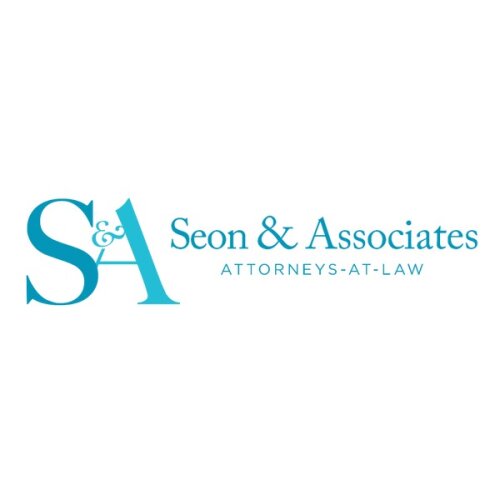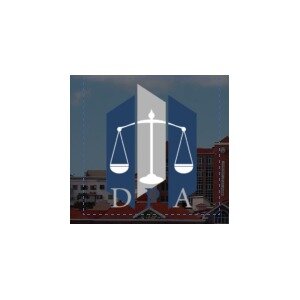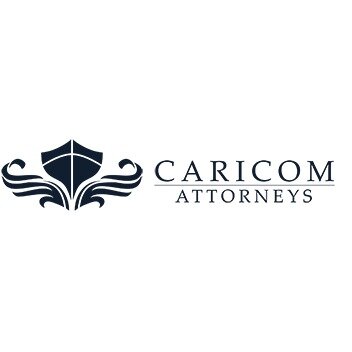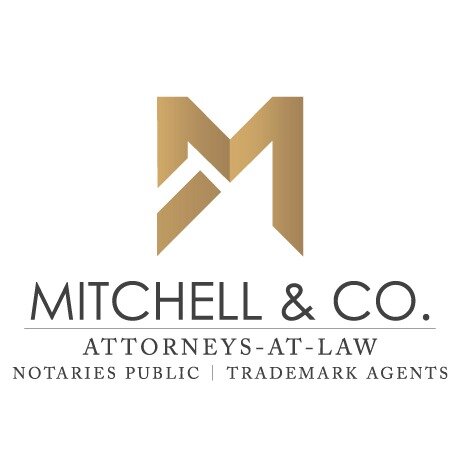Best Water Law Lawyers in Grenada
Share your needs with us, get contacted by law firms.
Free. Takes 2 min.
Or refine your search by selecting a city:
List of the best lawyers in Grenada
About Water Law in Grenada
Water Law in Grenada is a specialized area that governs the regulation, management, and protection of the nation's water resources. This branch of law ensures the sustainable and equitable use of water for domestic, agricultural, industrial, and environmental purposes. Grenada, being an island nation, places significant importance on water law to safeguard public health, support economic development, and protect natural ecosystems.
Water-related rights and obligations are shaped by several statutes, regulations, and policies. These legislative instruments address water allocation, access, quality standards, pollution prevention, and infrastructure development. The government works alongside various agencies to enforce these laws, striving to balance public and private interests in water usage.
Why You May Need a Lawyer
There are multiple situations where legal guidance on water law can be invaluable. You may need the help of a lawyer if you are:
- Attempting to obtain, transfer, or dispute water rights for personal, agricultural, or commercial use.
- Facing disputes regarding water boundaries or riparian rights with neighbors or government bodies.
- Alleged to have violated water pollution or conservation regulations.
- Seeking permits for drilling wells, constructing boreholes, or developing land that involves water resources.
- Impacted by infrastructure projects such as dam construction or irrigation schemes.
- Involved in environmental advocacy or concerned about public access to clean water.
- Ensuring compliance with laws related to the commercial use or export of water.
- Dealing with water shortages, rationing, or allocation during drought conditions.
A qualified lawyer can clarify your rights and obligations, represent your interests in negotiations or disputes, and help you navigate governmental procedures.
Local Laws Overview
Grenada’s legal framework for water management consists of several key laws and regulations. Some of the most relevant aspects include:
- Water Resources Management Act: This legislation provides for the allocation, use, control, and protection of water resources. It includes licensing requirements for water extraction and use.
- National Water and Sewerage Authority Act: Establishes the National Water and Sewerage Authority (NAWASA) as the primary agency responsible for public water supply and sanitation services. NAWASA oversees water infrastructure, supply, distribution, and sets tariffs for consumers.
- Environmental Protection Laws: Set standards to prevent pollution of water sources, regulate wastewater discharge, and promote sustainable resource management.
- Land Use and Development Policies: Address how land use and development projects may impact water resources, requiring assessments and mitigation strategies.
- International Treaties: Grenada is signatory to various conventions that influence water law, such as agreements on climate change and marine protection.
Water rights in Grenada are often linked to land ownership, but all citizens have certain rights to access potable water. Disputes are typically handled through administrative procedures, mediation, or the courts.
Frequently Asked Questions
What are water rights in Grenada?
Water rights refer to the legal entitlement to use, access, or control water resources. In Grenada, these rights are regulated by law and may require permits or licenses, especially for non-domestic or commercial use.
Who manages public water supply in Grenada?
The National Water and Sewerage Authority (NAWASA) is responsible for managing Grenada's public water supply, including the maintenance of infrastructure and setting of tariffs.
Do I need a permit to drill a well or borehole on my property?
Yes, you generally need to obtain permission from NAWASA before drilling wells or boreholes, to ensure proper management and avoid over-extraction of groundwater.
How do I resolve a dispute over water boundaries or access?
Disputes can be resolved through negotiation, mediation, or by seeking redress in the local courts. Consulting a lawyer experienced in water law can help clarify your legal position and represent your interests.
Is water pollution regulated in Grenada?
Yes, there are strict regulations prohibiting the pollution of water sources. These laws set quality standards and penalties for individuals or businesses who violate pollution controls.
Can I sell or transfer my water rights?
In some cases, water rights may be transferred or leased, but this is usually subject to approval by the relevant authority to ensure it does not negatively impact other users or the environment.
What happens during water shortages or drought?
Authorities may implement rationing, prioritize essential uses, and restrict non-essential water consumption during shortages. Citizens are encouraged to conserve water during these periods.
Are there regulations for using water in agriculture?
Yes, agricultural water use is regulated to ensure sustainable extraction, prevent pollution from runoff, and protect other water users. Permits may be needed for large-scale irrigation projects.
How can I report illegal water use or pollution?
Complaints about illegal water use or pollution can be reported to NAWASA or the Environmental Health Department for investigation and enforcement.
What are the penalties for violating water laws?
Penalties may include fines, orders to restore water sources, suspension of permits, and in severe cases, criminal prosecution. The severity of the penalty depends on the nature and impact of the violation.
Additional Resources
If you need more information or support regarding water law in Grenada, the following resources may be helpful:
- National Water and Sewerage Authority (NAWASA) - Main agency for water supply and regulation.
- Ministry of Agriculture and Lands - Involved in regulation of irrigation, agricultural water use, and land development projects.
- Grenada Environmental Health Department - Handles reports about water pollution and public health.
- Grenada Bar Association - Directory of licensed lawyers and legal resources.
- Local non-governmental organizations focusing on environmental and water resource advocacy.
Next Steps
If you need legal assistance regarding water law in Grenada, it is recommended to:
- Gather all relevant documents and information about your water issue or dispute.
- Contact a qualified lawyer who specializes in environmental or water law for an initial consultation.
- Reach out to the appropriate governmental agency (such as NAWASA or the Environmental Health Department) if your matter involves permits, complaints, or regulatory processes.
- Follow legal advice closely and keep records of all correspondence and documentation.
- If you are unsure where to start, local bar associations or legal aid organizations can provide referrals and guidance.
Remember, understanding your rights and obligations under Grenadian water law is crucial to ensuring compliance and protecting your access to this vital resource.
Lawzana helps you find the best lawyers and law firms in Grenada through a curated and pre-screened list of qualified legal professionals. Our platform offers rankings and detailed profiles of attorneys and law firms, allowing you to compare based on practice areas, including Water Law, experience, and client feedback.
Each profile includes a description of the firm's areas of practice, client reviews, team members and partners, year of establishment, spoken languages, office locations, contact information, social media presence, and any published articles or resources. Most firms on our platform speak English and are experienced in both local and international legal matters.
Get a quote from top-rated law firms in Grenada — quickly, securely, and without unnecessary hassle.
Disclaimer:
The information provided on this page is for general informational purposes only and does not constitute legal advice. While we strive to ensure the accuracy and relevance of the content, legal information may change over time, and interpretations of the law can vary. You should always consult with a qualified legal professional for advice specific to your situation.
We disclaim all liability for actions taken or not taken based on the content of this page. If you believe any information is incorrect or outdated, please contact us, and we will review and update it where appropriate.
Browse water law law firms by city in Grenada
Refine your search by selecting a city.













